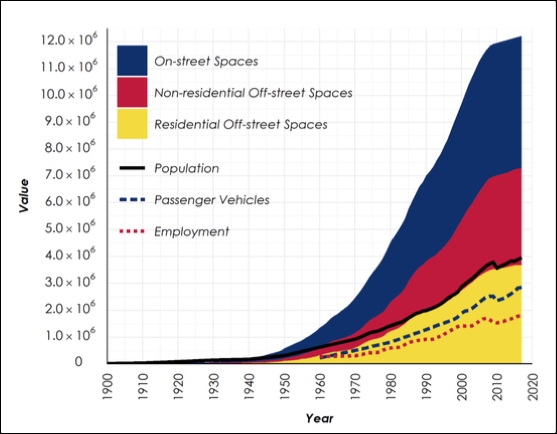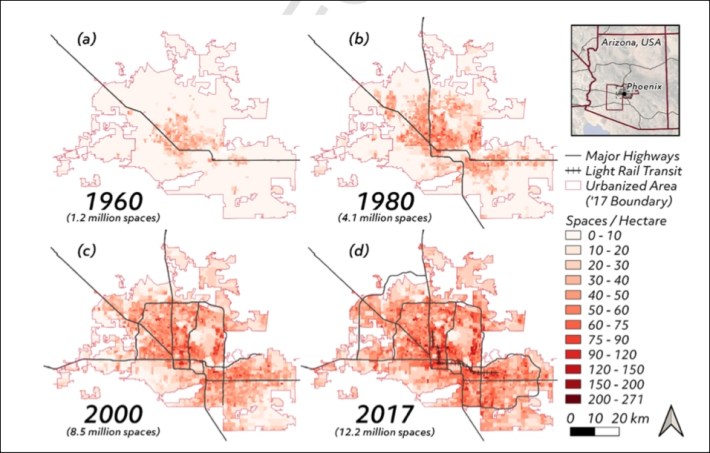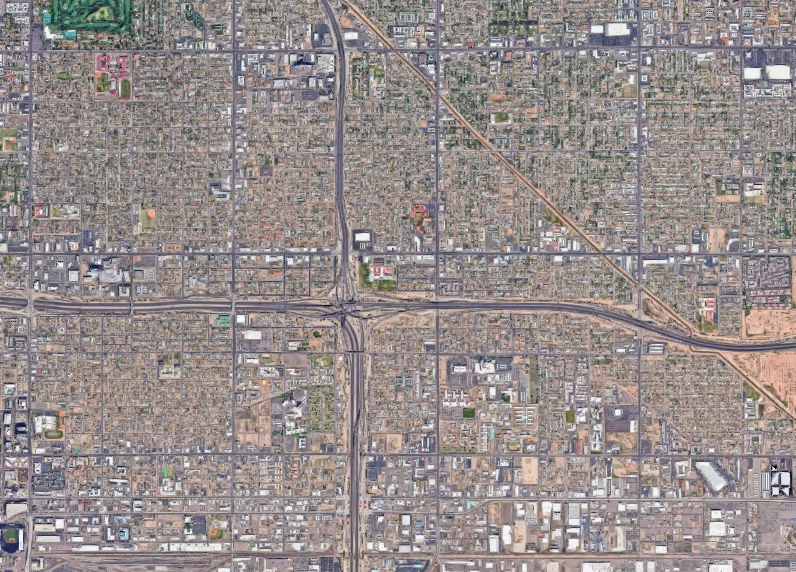The Phoenix metro area has so much parking that if you added up every space, it would equal roughly 10 percent of the total land of the region, a new study shows.
The Phoenix region has about 39 parking spaces for every 100 acres, or about three spaces for each of the 4 million people living in the region — or 4.27 spaces for every registered vehicle, according to Christopher Hoehne and a team of researchers who will soon publish their findings in the academic journal Cities.
Including roads and highways, about 36 percent of the region's total land area is paved. (The estimate does not account for garaged spaces or highway flyovers.)

Hoehne and his research team estimated the total number of parking spaces by matching of buildings and building types to the corresponding municipality's zoning requirements for parking spaces. On-street parking spaces were calculated using a database of street segments combined with parking regulations. The count includes on and off-street parking as well as parking spaces at residences (driveways, garages).
"One thing research like our does is put the amount of parking front and center when talking about serious issues facing cities, be it walkability, urban heat island, air pollution, resilience, transport equity or any other major concern we have," said David King, a Arizona State University professor and co-author of the study, told Streetsblog.
"We don't see the sheer quantity of parking in our cities, and if we did know how much parking there actually was we'd think it was stupid."

The good news? Since 2008, the growth in the number of parking spaces has slowed considerably — increasing by just .44 percent, compared to a growth rate of 5 percent between 1960 and 2000. Some of the growth in parking more recently has been concentrated near Phoenix's light rail line (which is shown in a hashed line in the bottom right map above.)
By comparison, Los Angeles has 50 percent more parking spaces than Phoenix, but it has 100 percent more people.






